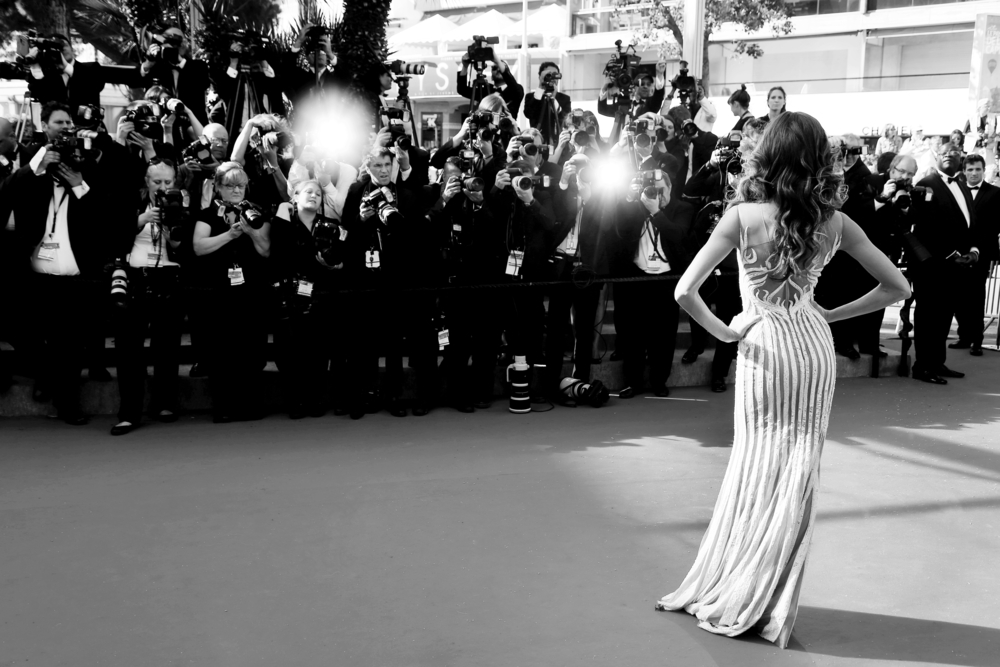These days, it’s difficult to find someone who has never heard of the Kardashians. This famous family shot to stardom due to their almost decade-long reality series, Keeping Up with the Kardashians (others argue that their fame stems from daughter Kim’s infamous sex tape released six months before the show began airing). What began as a simple concept of recording the daily goings-on of this large, blended family is now a full-blown money making machine. From endorsements and book deals to magazine covers and clothing lines, it seems as though the Kardashians are trying to take over the world.
And we’re letting them. Actually, we’re encouraging them. How? By continuing to watch their reality show.
You might think that watching 42 minutes of someone else’s life might be as boring as watching paint dry. But when it comes to the popularity of reality television, it’s quite the opposite. When COPS premiered back in 1989, viewers were able to experience the booze-fueled drama, very real violence, and pure entertainment of being a beat cop, working to clean up the most dangerous, crime-ridden cities in America – all from the comfort of their own home (plus, enjoy one of the most iconic theme songs of all time). Very shortly after, producers – and networks – knew they had struck television gold with reality TV.
After COPS came more hits like Extreme Makeover: Home Edition, Trauma: Life in the E.R., MTV’s The Real World, The Bachelor, So You Think You Can Dance, Temptation Island, Survivor, Dancing with the Stars, and the long-running, just-recently-wrapped American Idol. These days, reality television continues to grow. Consider the numbers: in 2000 there were four reality shows on television and just 10 years later there were 320. Cooking, baking, home renovations, smart kids, fashion designers, celebrity rehab, celebrity interns – you name it, there’s most likely been a reality show about it.
Whether you think reality TV is a waste of airtime or the best thing since sliced bread, the question still remains: why is this type of programming so popular?
Steven Reiss, Ph.D., is a professor of psychology at Ohio State University. He, along with his colleague James Wiltz, Ph.D. (now Director of Milestones Clinical and Health Resources in Indiana) conducted a survey and came up with some intriguing reasons why viewers seem so endlessly enamoured when it comes to reality TV.
Reality television is much more interactive than traditional television shows. How many times have you dialed or texted a vote in favour of a contestant on The Voice or American Idol (or wanted to, at least)? Even if you’ve never participated in that way, the opportunity to interact in real life with the ‘characters’ on a reality show exists not only during live performances but also on social media. If you don’t vote for a contestant, you can still Tweet them as to why, an aspect that thrills fans of reality TV.
In that same vein, a contestant or an otherwise ‘real’ person is much more relatable to viewers than a character from a drama or sitcom. Viewers of reality television see regular people on television doing extraordinary things (think of the travel and stunts performed by contestants on the award-winning series The Amazing Race) or, better yet, become very famous (like the Kardashians) and think to themselves, ‘That could be ME!’ One of the reasons The Bachelor and The Bachelorette are still so popular – despite the abysmal success rate of couples spawned from each show – is because they allow viewers the chance to imagine that they themselves could be the next person to step out of a limo or give/receive that coveted final rose.
Watching reality TV allows viewers to fantasize about changing their social status by becoming famous.
While some subjects of a reality TV show might have faded into the post-15-minutes abyss, you can’t deny the unprecedented success of superstars like Carrie Underwood (American Idol season 4 winner), Christian Siriano (season 4 winner of Project Runway), or Jillian Michaels (trainer on The Biggest Loser turned entrepreneur and worldwide wellness guru). While most viewers understand that it’s highly unlikely they’ll become the next Kelly Clarkson, it’s not enough to stop them from watching shows that stoke
their imagination.
Even with the surge in popularity of online streaming programs like Netflix (not to mention all the original programming that goes along with it), reality television production isn’t going anywhere. The networks love it because it’s cheap to make and the viewers love it because it’s interactive, relatable, and feeds their fantasies of becoming the next Kim Kardashian – well, Kim Kardashian minus the sex tape (we hope).
Written By Jess Campbell


